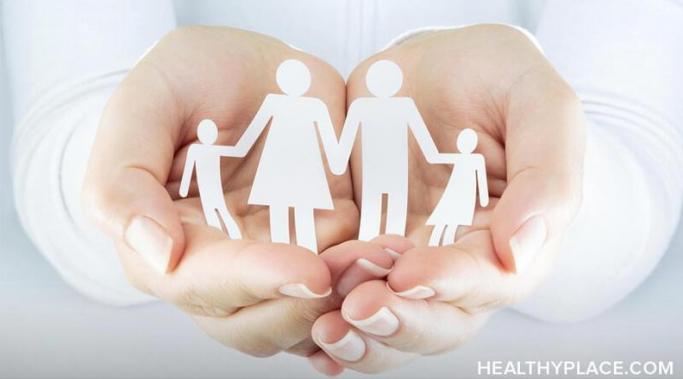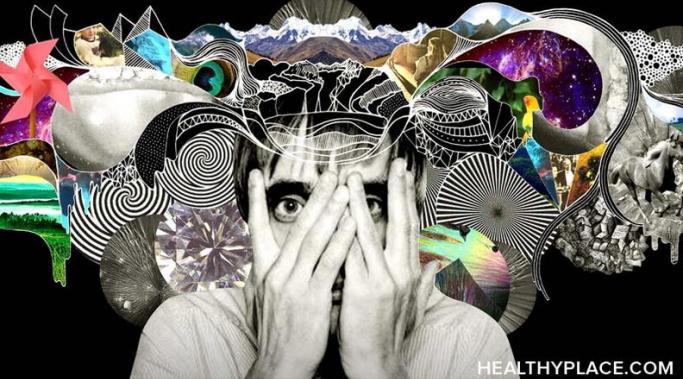When people realize they have a mental illness like bipolar disorder or schizophrenia, one of the first feelings they have is fear. And there’s a lot to be afraid of. There are the treatment, doctors, symptoms, side effects and then there’s the illness itself. It’s completely reasonable to feel scared in that situation.
And in that moment, or possibly in a moment shortly thereafter, the fear of abandonment becomes a reality. A very reasonable and realistic fear is that people will abandon you because of the mental illness.
Impact of Bipolar
Now, of course, no want wants to be bipolar, but people do make the conscious decision to admit to their bipolar disorder online. There are many reasons to do this but often people want to be able to express themselves in catharsis or reach out for support. These are perfectly good reasons.
But, unfortunately, that decision is not always met with understanding and support. In fact, sometimes it’s met with vicious hatred.
Not long ago I was in touch with someone newly-diagnosed with bipolar disorder who had started a blog to express his feelings on it. He was just an ordinary guy trying to do his best to make sense of the senseless.
And what happened? Quite simply he was attacked on all sides from the antipsychiatry crowd. Somehow they found him, zeroed in on him, and hounded him with hatred until he slinked off of Twitter altogether.
I have not done a book review on here but that’s because I don’t tend to read help books on bipolar disorder – I write that material, not read it. But recently one such book has landed in my possession and I’d like to take the time to recommend it: Loving Someone with Bipolar Disorder – Understanding and Helping Your Partner (second edition) by Julie A. Fast and John D. Preston, PsyD.
People often ask me how to help others with bipolar disorder and I believe this book could help partners answer that question.
This article is a continuation from Multi-Polar - The Many Moods of Bipolar Disorder part one.
As I wrote, some people believe that if you don't have a mental illness, you can't understand someone with a mental illness. I'm not sure this is true.
I have been writing about mental illness for almost a decade now and part of the reason was to try and help people understand bipolar disorder and other mental illnesses. And I have succeeded in some regards. I get emails from people quite frequently that tell me how much more they understand about the disease now that they have read my writings. I am tremendously gratified by this.
But, of course, I reach a tiny percentage of people and the issue of mental illness stigma still affects us all. And some people, no matter how hard we try to explain ourselves to them, never seem to understand mental illness.
Which begs the question: can a person without a mental illness ever really understand what we’re going through?
The name “bipolar disorder” is seemingly self-explanatory. It’s disorder involving the two poles of emotion – depression and mania or hypomania. People often think of this as the poles of “sad” and “happy.” But as any person with bipolar disorder can tell you, mania or hypomania is not necessarily happy at all.
Mental illness symptoms are as cold and generic as inhumanly possible. “Depressed mood.” “Loss of energy or fatigue.” “Psychomotor retardation or agitation.”
Ah, yes, those things. They sound like a bummer.
Although, actually, they don’t. They sound like characteristics of a lab animal.
And one of the pesky symptoms of depression is “easy to tear.” You know, you cry a lot.
But everyone cries, so how bad could that possibly be?
One day I was in a pub eavesdropping on the girls deep in conversation next to me. They were chatting about bisexuals. They were commenting that they would never date a bisexual as really bisexuals were heterosexual that were just playing around with homosexuality and eventually they would “turn back” into heterosexuals.
Well, I, being bisexual was a little insulted by this. I have not “turned” into anything. I simply am bisexual like they are simply gay.
I realized though that it was lucky for me that I heard these girls talking because I could cross them off my list as I have no desire to date sanctimonious, self-righteous, ignorant women.
And I also realized this: it’s their loss.
I’m great.
I only lost sanctimonious, self-righteous, ignorant women while they lost me.
And the same is true of mental illness. When someone rejects you simply because of a medical illness that you didn’t ask for and over which you have no control, you are only losing someone ignorant while they are losing the amazing person that is you.
Bipolar is a disease that takes over your brain – well, parts of your brain anyway – and these affected parts of your brain change your psychology right along with them. So once when you felt “normal” or let’s say, average, you now feel utterly destroyed. Your emotions are altered thanks to the attack on your brain.
And what’s worse about this is that bipolar or depression fundamentally changes who you think you are at that moment. If you used to be a fun-loving, happy-go-lucky sort, in a depression, nothing could be farther from the truth. When manic, all your thoughtful, careful ways become things of the past. You can barely identify with the person you were pre-mood.
And perhaps even worse than all that is that some part of you sees this dissonance. You know that who you are at that moment isn’t who you really are. It’s like someone else, a crazy person, moved right into your head and body and coopted your life. Bipolar snatched your body and brain.



![MP900321083[1]](/sites/default/files/styles/blog_listing/public/uploads/2012/06/MP9003210831.jpg?itok=qIqD0HL6)

![MP900262232[1]](/sites/default/files/styles/blog_listing/public/uploads/2012/05/MP9002622321.jpg?itok=hqxmkVBd)


